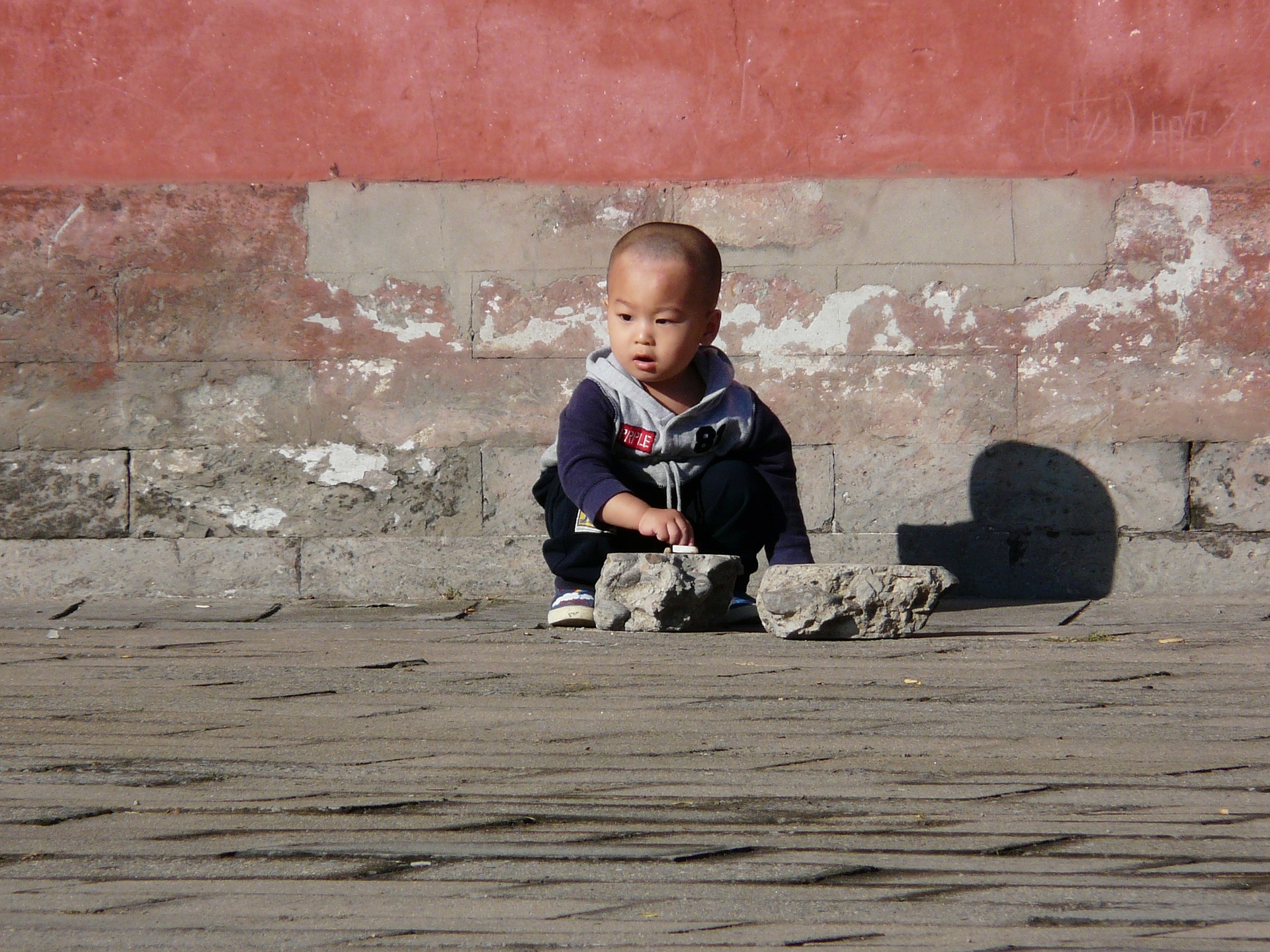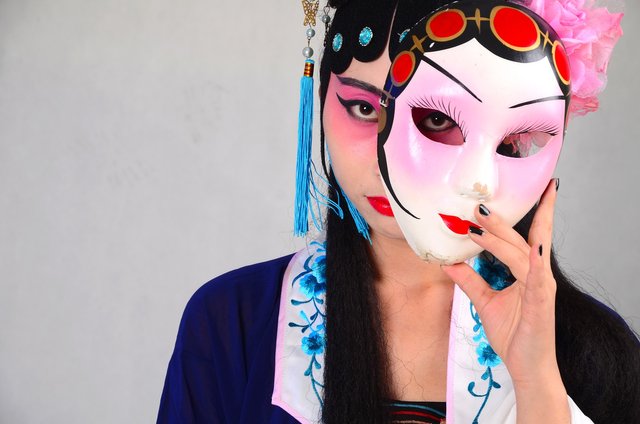
You could read about my favourite documentary on China in my last post and today I would like to write about China as well, seen from a much different perspective though. This post is going to be about the most disturbing documentary I have ever seen - China's Stolen Children.
At the beginning of the documentary we get to know a young Chinese couple whose son was kidnapped while staying with his grandmother in the countryside. It is quite obvious that the child's kidnapper, or at least a person who helped the kidnappers, was his grandmother's neighbour, the last person who saw the child. However, the local police, probably bribed by the kidnappers, refuse to start the investigation due to supposed lack of evidence. It is quite often the case in China that police and authorities, especially in the rural areas, ignore cases of kidnapping and human trafficking. In this short documentary made by Deutsche Welle we learn about a woman whose son was sold by her ex-husband and adopted by a family from rural China. The police conducted a blood test of the desperate mother and confirmed that her child was adopted by a family living in the village under their jurisdiction. However, they refused to investigate the case claiming that the woman didn't stick to right procedures when reporting the case.
Although transnational trafficking in children has attracted worldwide attention in the last two decades, internal trafficking has been relatively ignored. A number of geographical contexts have been largely neglected by the academic community and one of them has been China; a country with a remarkably long history of the phenomenon and one in which the particular practice is culturally embedded, to the point that it is viewed simply as tradition.
China's Stolen Children: Internal child trafficking in the People's Republic of China
Then, we get to know Zhu, a private detective who specializes in child trafficking. Abandoned by police and authorities, the families of snatched children turn to Zhu and offer whatever they can for his help and assistance in getting the wherabouts of their missing kids. He also takes part in dangerous rescue operations of kidnapped teenage girls. Some of them end up as sex slaves, some end up us housewives. In some parts of China buying a wife from traffickers has been cheaper and easier than finding a wife in a more "traditional" way for many single men.

However brave and determined detective Zhu might be, he manages to solve only one in twenty cases. The vast majority of parents whose children were kidnapped will never see their sons and daughters again.
Next family in the documentary are the victims of child birth regulations in China - they are too young to have a baby. If the woman decides to give birth to the child, their offspring will be a "no-person", not officially recognized by the government as a human being and a citizen of the People's Republic of China. They can either abort the child or pay a fine to local officials. The latter seems to be an impossible solution, as the amount of money required by the local officials is too hefty for those people and paying it would lead the young parent's families to famine.
They decide to sell their daughter to Wang Lee, a human trafficker. He is an unscrupulous man who sold his own son, aged 5, after the death of his wife. Wang Lee sees himself as only a middle-man between those who provide supply and demand. He inspects families willing to sell their children and patiently talks to those who are willing to buy them. Those are families who can't have their own children and feel pressure from their relatives and friends. According to Chinese tradition, only the male offspring can assure the family move on into further generations. The son is also responsible for taking care of his benevolent adoptive parents. The climax of the film is a short monologue by Wang Lee, his last words being:
I think there must be something wrong with treating children as goods but I can't figure out what it is.
Although the documentary was made over a decade ago, nothing much has changed ever since regarding the subject matter. Every year as many as 200,000 children are kidnapped and sold across China. Even taking China's huge population into account, the statistics are overwhelming. This is a human tragedy of enormous proportions and it is unbelievable that it takes place in the 21st century.
A shocking fact about child trafficking in China is the number of people involved in it and the conspiracy around it. Actually, the terrifying part is the demand end of this malevolent practise. Families willing to buy children, officials taking bribes for issuing new hukous, villagers ignoring desperate parents' pleas, ignorant police officers who don't seem to care about criminals behind adoptions, beggar gangs, child brothel owners and their customers. That's a pretty cross-sectional part of a society, if you ask me, which shows but a sinister side of life in China. Child trafficking goes way beyond the One-Child Policy, which many claimed to have been the main source of this evil, however not much changed once it had been abolished. It seems this problem is not going to be solved any time soon. Furthermore, it has been covered by officials for decades and has been taken for granted by quite a part of general public.
If you travel or live in China and you see kids begging, please take their photos and ask your Chinese friends to put them on this website. You might help desperate families and give them some hope of finding their loved ones:
http://www.baobeihuijia.com/Index.aspx
Sources:
Child Trafficking in China by DW
China's stolen children: Internal child trafficking in the People's Republic of China
The Painful Search for China's Missing Children by Washington Post
Kidnapped and Sold
Pictures:
https://pixabay.com
Earworm
So many awful problems in this world like this. Thank you for raising awareness about this problem. Let's all work together to better this world for everyone.
Downvoting a post can decrease pending rewards and make it less visible. Common reasons:
Submit
Thanks for your comment and I'm glad I could let some people get to know about it.
Downvoting a post can decrease pending rewards and make it less visible. Common reasons:
Submit
The situation in China is dramatic. In Venezuela children die of hunger, in my most recent post I explain my struggle against the dictatorship in my country. Let us continue giving everything to conquer a better world.
Downvoting a post can decrease pending rewards and make it less visible. Common reasons:
Submit
Thanks for your comment. I will read your post, I hope the situation in your country will get better soon.
Downvoting a post can decrease pending rewards and make it less visible. Common reasons:
Submit
This is just sad and something these children does not deserve. Unfortunately, this sort of practice won't be disappearing soon, unless man reign his desires, which is impossible. Worse still, this sort of thing is not limited to China alone. This article is definitely an eye opener, thanks for sharing it. Resteemed
Downvoting a post can decrease pending rewards and make it less visible. Common reasons:
Submit
Cheers, I appreciate your comment. I'm aware of the fact that it is not China alone, but the scale of this problem there has been epidemic for decades.
Downvoting a post can decrease pending rewards and make it less visible. Common reasons:
Submit
This is the saddest part... Thanks for the post! I gotta check that documentary!
Downvoting a post can decrease pending rewards and make it less visible. Common reasons:
Submit
Thanks for your comment! It is not easy to watch, I had to push myself to do it second time for the sake of writing this post. It's probably worth it though.
Downvoting a post can decrease pending rewards and make it less visible. Common reasons:
Submit
oh nooo this is so horrible.
Downvoting a post can decrease pending rewards and make it less visible. Common reasons:
Submit
More and more people there seem to be aware of the problem and speak out, there is some hope.
Downvoting a post can decrease pending rewards and make it less visible. Common reasons:
Submit